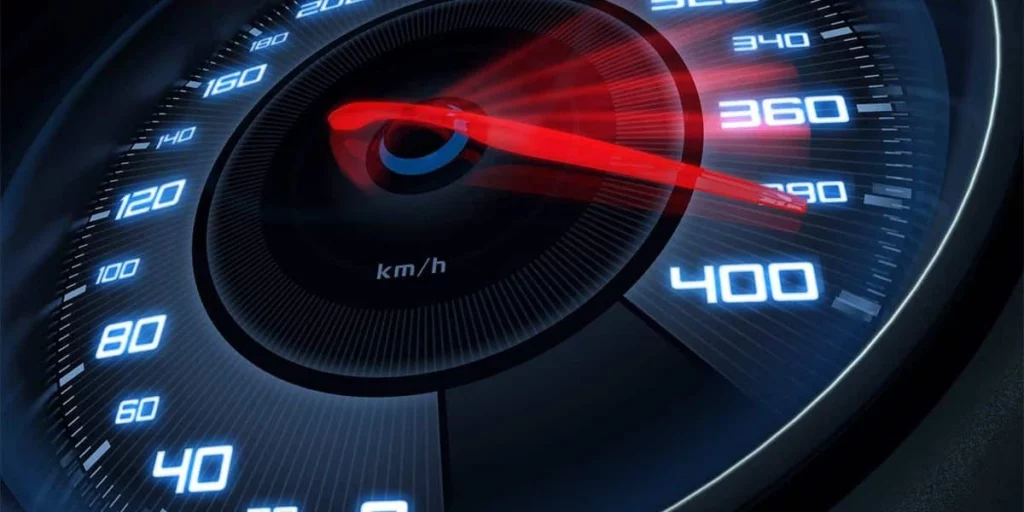We will clear up the 9 myths regarding WordPress speed optimisation in this blog article, giving you with facts and practical insights to improve the performance of your WordPress website. Unfortunately, several myths and misconceptions surround WordPress speed optimisation, leading to ineffective practices and wasted efforts.
Myth 1: WordPress is inherently slow
One of the most prevalent WordPress myths is that it is inherently sluggish. The reality is, though, that WordPress is not slow. The speed of a WordPress website is determined by several factors, including hosting, themes, plugins, and content optimisation. WordPress may be as quick as any other website if correct optimising strategies are used.
Myth 2: Speed optimisation is only about caching
While caching is an essential aspect of speed optimisation, it is not the only factor that affects website performance. Caching helps store static versions of your web pages to reduce server load and speed up page delivery. However, other factors, such as image optimisation, code minification, database optimisation, and server response time, also play crucial roles in improving website speed.

Myth 3: Premium themes are faster than free themes
Many people believe that premium themes will always perform better than free themes. However, this is not always the case. The speed of a theme is determined by its code quality, optimisation practises, and the developer’s performance focus.
While some premium themes emphasise speed, there are many well-optimised free themes available. It is critical to select a theme based on its performance attributes rather than its pricing.
Myth 4: All plugins slow down your site
Plugins are a significant part of the WordPress ecosystem, enabling website owners to extend functionality and add features without coding. While it’s true that poorly coded or resource-intensive plugins can impact website speed, not all plugins are created equal.
Many well-coded plugins are optimised for performance and have a minimal impact on your site’s speed. It’s crucial to research and select plugins carefully, ensuring they are regularly updated and have positive reviews.
Myth 5: Image compression reduces image quality
Image optimisation plays a crucial role in improving website speed. One common myth is that compressing images will significantly reduce their quality. However, modern image compression techniques, such as lossless and lossy compression, can significantly reduce file size without noticeable degradation in quality.
Recommendations
- WebP File Format
- Lossless Compression
Several plugins and online tools are available to help you optimise images without compromising visual appeal.
Myth 6: Speed optimisation is a one-time task
Website speed optimisation is not a one-time task. The digital landscape constantly evolves, and as you add new content, themes, and plugins, you need to ensure your site maintains optimal performance. Regularly auditing your website’s performance, monitoring page load times, and updating plugins and themes are crucial to maintaining a fast-loading site.
Myth 7: Any web hosting is sufficient for WordPress
Choosing the right web hosting provider is paramount to achieving optimal website speed. Shared hosting plans might be budget-friendly, but they often lack the necessary resources to handle increased traffic and demand. Their servers are rammed with thousands of low-end websites.
Investing in a reputable hosting provider that specialises in WordPress hosting can significantly improve your site’s speed and reliability. Normally premium providers have low-contention of websites on each server. As the price is higher, you can bet that they’re hosting business websites who can afford to pay it.
Myth 8: Speed optimisation is only for developers
While some speed optimisation techniques require technical expertise, many improvements can be implemented by website owners with no coding background. Content optimisation, image compression, caching plugin, and utilising a content delivery network (CDN) are strategies that can be implemented without extensive technical knowledge.
However, for more advanced optimisation tasks, consulting with a professional developer or hiring a WordPress optimisation service can be beneficial.
Myth 9: Speed doesn't impact SEO
Website speed is a crucial factor in search engine optimization (SEO). Google considers page load time as a ranking factor, prioritizing faster websites in search results. Additionally, a slow website can lead to higher bounce rates and lower user engagement, negatively impacting your site’s SEO performance.
By improving your website’s speed, you not only enhance the user experience but also increase your chances of ranking higher in search engine results.
Conclusion
WordPress speed optimisation is frequently surrounded by myths and misunderstandings that might impair your website’s performance. We hope that by dispelling these nine common fallacies, we will bring clarity and alleviate any uncertainty about WordPress performance optimisations.
Remember that WordPress is not intrinsically sluggish, and with the appropriate strategies, you can obtain exceptional speed and performance for your website. Concentrate on total optimisation, which includes cache, image compression, theme and plugin selection, hosting, and frequent maintenance.
You can design a fast and efficient WordPress website that gives a good user experience, enhances your search engine results, and ultimately attracts more traffic and conversions by emphasising speed optimisation.